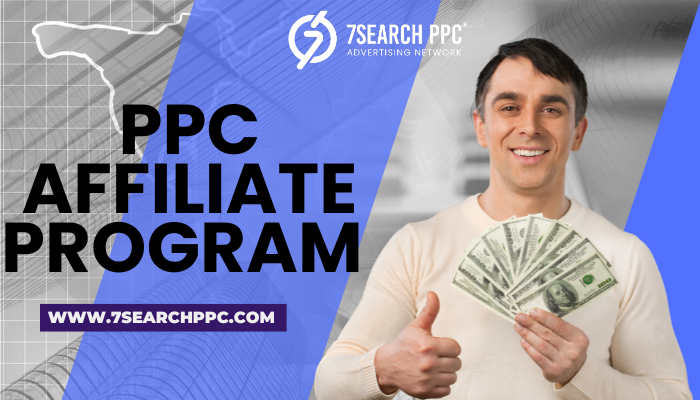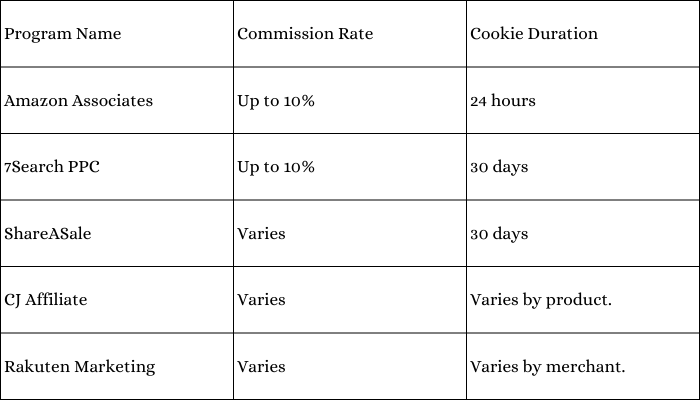In the ever-evolving landscape of online marketing, PPC affiliate programs have emerged as a powerful avenue for individuals looking to monetize their online presence. By leveraging the synergies between pay-per-click (PPC) advertising and affiliate marketing, marketers can create lucrative income streams with relatively low upfront costs. This blog will explore the intricacies of PPC affiliate programs, how to get started, and the best options available to maximize your earnings.

Understanding PPC Affiliate Marketing
What is PPC Affiliate Marketing?
PPC affiliate marketing is a strategy that combines two popular online marketing methods: pay-per-click advertising and affiliate marketing. In this model, affiliates promote products or services through PPC ads and earn commissions based on the clicks or sales generated from those ads. Essentially, affiliates act as digital matchmakers, connecting potential customers with products while earning a fee for each successful referral
Start Earning
How Does It Work?
The mechanics of PPC affiliate marketing are straightforward:
- Choose a Niche: Identify a niche that aligns with your interests and has commercial potential.
- Select an Affiliate Program: Join an affiliate program that offers products or services relevant to your niche.
- Create PPC Ads: Develop compelling ads that encourage clicks and direct traffic to your affiliate links.
- Track Performance: Monitor the performance of your ads using analytics tools to optimize for better results.
Benefits of PPC Affiliate Programs
PPC affiliate programs offer several advantages that make them appealing for both novice and experienced marketers:
- Targeted Traffic: PPC allows you to reach specific audiences actively searching for products in your niche.
- Cost-Effective: You only pay when someone clicks on your ad, ensuring that your budget is spent efficiently.
- Quick Results: Unlike organic SEO strategies, which can take time to yield results, PPC campaigns can generate traffic almost immediately.
- Flexibility: You can easily adjust your campaigns based on performance metrics, optimizing for better returns.
Getting Started with PPC Affiliate Programs
Choose Your Niche
Selecting a niche is crucial for success in PPC affiliate marketing. Focus on areas where you have knowledge or passion, as this will help you create authentic content that resonates with your audience. Research potential niches using tools like Google Trends or Keyword Planner to identify high-demand topics
Find High-Paying Affiliate Programs
To maximize your earnings, look for high-paying affiliate programs that offer competitive commissions. Some popular options include:
- Amazon Associates: Offers up to 10% commission on various products.
- ClickBank: Known for digital products with commissions often exceeding 50%.
- ShareASale: A diverse marketplace featuring numerous merchants across various niches.
Set Up Your PPC Campaign
Once you've chosen an affiliate program, it's time to set up your PPC campaign:
- Select a PPC Platform: Popular platforms include Google Ads, Bing Ads, and social media networks like Facebook and Instagram.
- Create Compelling Ad Copy: Write engaging headlines and descriptions that highlight the benefits of the products you're promoting.
- Define Your Budget: Start with a manageable daily budget and adjust based on performance metrics.
Optimize Your Campaign
Continuous optimization is key to a successful PPC campaign. Use analytics tools to track clicks, conversions, and ROI. Adjust your ad copy, targeting options, and bidding strategy based on performance data
Top PPC Affiliate Programs to Consider
Here are some of the best PPC affiliate programs available today.

Tips for Success in PPC Affiliate Marketing
- Research Keywords Thoroughly: Utilize keyword research tools to identify high-performing keywords related to your niche.
- Test Different Ad Formats: Experiment with various ad formats (text, display, video) to see what resonates best with your audience.
- Monitor Competitors: Keep an eye on competitors’ strategies and adapt accordingly to stay ahead in the market.
- Focus on Landing Page Optimization: Ensure that the landing pages you link to are optimized for conversions with clear calls-to-action.
Common Challenges in PPC Affiliate Marketing
While there are many benefits to PPC affiliate marketing, it also comes with its challenges:
- Cost Management: Without proper monitoring, costs can quickly escalate if you're not careful with bidding strategies.
- Ad Fatigue: Over time, audiences may become desensitized to your ads; regular updates are necessary.
- Competition: The popularity of certain niches means you may face stiff competition from other marketers.
Conclusion
PPC affiliate programs offer an exciting opportunity for individuals looking to monetize their online presence effectively. By understanding how these programs work and implementing strategic campaigns, you can tap into lucrative income streams while promoting products you believe in. Whether you're new to online marketing or looking to expand your existing efforts, exploring the best PPC affiliate programs could be your next big step toward financial success. Start today by researching potential niches and finding high-paying affiliate programs that resonate with you—your journey into the world of PPC affiliate marketing awaits.
Frequently Asked Questions (FAQs)
What is a PPC Affiliate Program?
Ans. A PPC affiliate program compensates affiliates each time a visitor clicks on their ad link resulting from their marketing efforts
How do I choose the right affiliate program?
Ans. Look for programs that align with your niche, offer competitive commissions, and provide adequate support for affiliates
Can I use multiple affiliate programs simultaneously?
Ans. many successful marketers use multiple affiliate programs to diversify their income streams and reduce risk
What are some high-paying affiliate programs?
Ans. Some high-paying options include ClickBank for digital products and Amazon Associates for physical goods
Is it necessary to have a website for PPC affiliate marketing?
Ans. While having a website can enhance credibility and provide additional content for visitors, it’s not strictly necessary; you can also use social media platforms or email marketing
